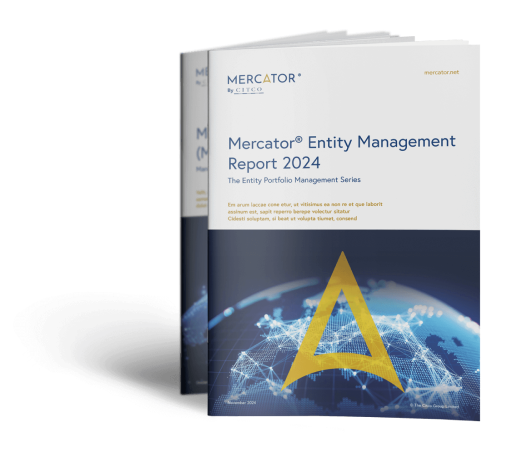The information contained in this document is marketing material and for informational purposes only. The information contained in this document is presented without any warranty or representation as to its accuracy or completeness and all implied representations or warranties of any kind are hereby disclaimed. Recipients of this document, whether clients or otherwise, should not act or refrain from acting on the basis of any information included in this document without seeking appropriate professional advice. The provision of the information contained in this document does not establish any express or implied duty or obligation between Citco and any recipient and neither Citco nor any of its shareholders, members, directors, principals or personnel shall be responsible or liable for results arising from the use or reliance of the information contained in this document including, without limitation, any loss (whether direct, indirect, in contract, tort or otherwise) arising from any decision made or action taken by any party in reliance upon the information contained in this document. © The Citco Group Limited, December 2024.
Australia – Sustainability Reporting Requirements for 2025 and beyond
Australia has implemented new sustainability reporting requirements that represent a significant change in corporate disclosure obligations. These requirements, which came into effect in January 2025, mandate that large Australian companies must submit annual sustainability reports alongside their standard financial reporting.
Understanding the Framework
The Australian Parliament has established climate-related financial disclosures as the primary component of these sustainability reports. The Australian Securities and Investments Commission (ASIC) oversees compliance under the Corporations Act, ensuring companies meet their reporting obligations.
Who Needs to Report?
The reporting requirements apply to three main categories of organizations:
- Large Entities: Companies must meet specific thresholds regarding revenue, assets, and employee numbers to fall into this category. The specific requirements vary depending on the implementation group.
- Greenhouse and Energy Reporters: Organizations with existing reporting obligations under the national greenhouse and energy reporting framework must comply with these new requirements.
- Asset Owners: This category includes superannuation entities, registered schemes, and retail corporate collective investment vehicles that meet specified thresholds.
Implementation Timeline
The requirements are being introduced in through a phased approach:
Group 1 (Current Phase: January 2025 – June 2026)
- Companies with revenue exceeding $500 million
- Organizations with consolidated assets over $1 billion
- Businesses with more than 500 employees
Group 2 (July 2026 – June 2027)
- Companies with revenue exceeding $200 million
- Organizations with consolidated assets over $500 million
- Businesses with more than 250 employees
Group 3 (From July 2027)
- Companies with revenue exceeding $50 million
- Organizations with consolidated assets over $25 million
- Businesses with more than 100 employees
Key Requirements
Companies must prepare comprehensive sustainability reports that address:
- Corporate governance approaches
- Strategic planning initiatives
- Risk management frameworks
- Specific metrics and targets
- Climate-related financial impacts
Required Documentation
Companies must submit:
- Detailed climate statements
- Supporting documentation and notes
- A formal directors’ declaration
- Results of scenario analyses
The Risk of Non-Compliance
While the Corporations Act 2001 does not specify exact penalties for late submissions, ASIC has the authority to take action against non-compliant companies. This can include imposing fines and other regulatory penalties.

